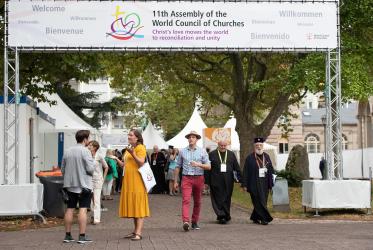Episcopal Church in the Philippines
The beginning of the Episcopal Church in the Philippines was a worship service in Manila in 1898 for Americans and other English-speaking people conducted by an Episcopal Church chaplain in the US Armed Forces. A mission to Chinese migrants in Manila was started and the bishop of Shanghai was appointed to oversee the church work in the Philippines. In 1901 the General Convention of the Protestant Episcopal Church in the USA admitted the church as the Mission District of the Philippine Islands and elected its first bishop. In 1937 the church was allowed to use the name Philippine Episcopal Church. In 1990 it was inaugurated as an autonomous church and a province of the Anglican Communion with the name Episcopal Church in the Philippines (ECP).
At the time of the formation of the ECP all the inhabitants of the country were Roman Catholic with the exception of the Muslims in the south and tribal people in the mountains. The policy of the first bishop of the ECP was "no altar over against another altar and no planting of churches over against another church". Thus the ECP started and formed its membership and congregations by the conversion of non-Christian inhabitants, i.e. the Chinese migrants in Manila and the tribal and indigenous peoples. The isolated mountain tribes were self-sustaining communities with no infrastructures for education, health, transport and communication. The Episcopal Church built churches for their souls, schools for their education and hospitals and clinics for their health. It also facilitated the building of roads. This evangelism policy of the ECP explains why most of the members of the church are from the indigenous people in the south and north of the country, and why it took this church 37 years to have its first ordained native clergy, and 69 years to have its first Filipino bishop.
According to its mission statement, the Episcopal Church in the Philippines exists to proclaim with integrity the fulfilling of God's mission in the world by proclaiming the good news of the kingdom of God: baptizing, teaching and nurturing new believers; responding to human needs by loving service; and seeking to transform unjust structures of society.



